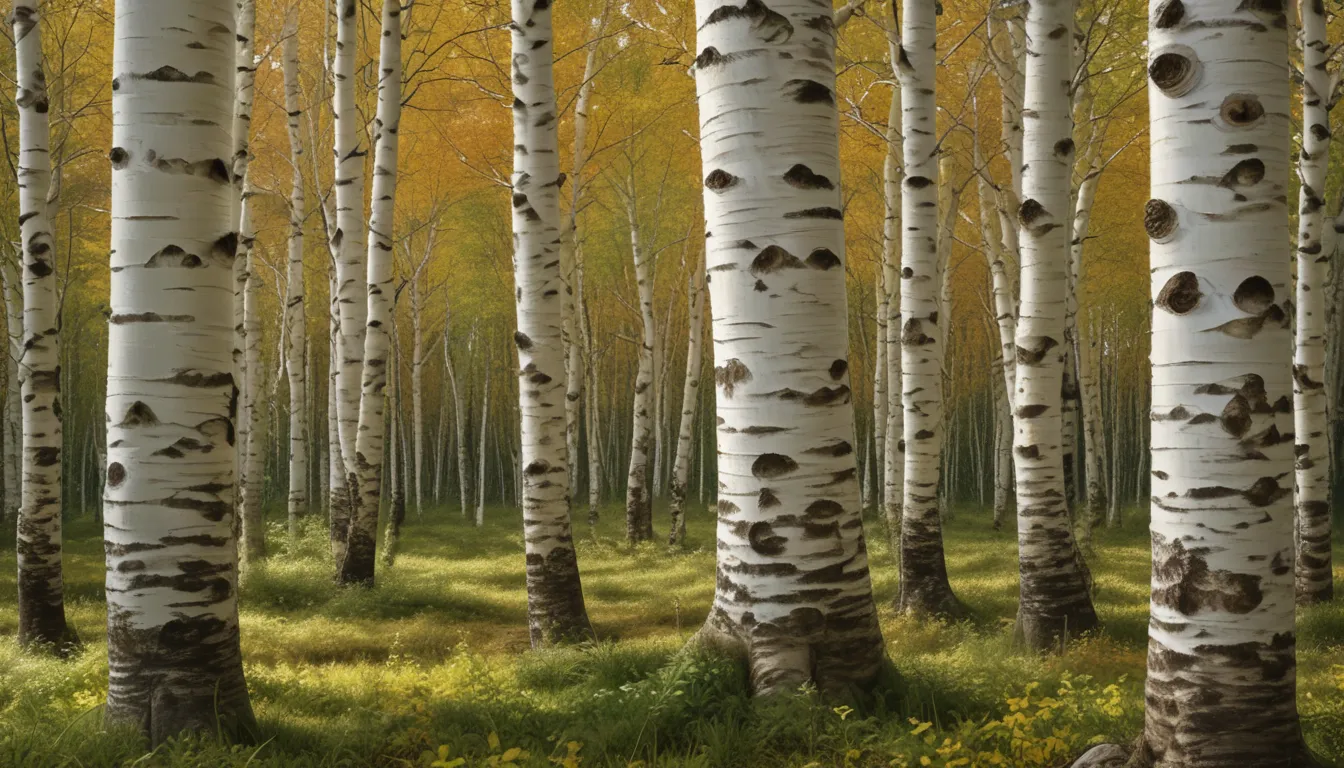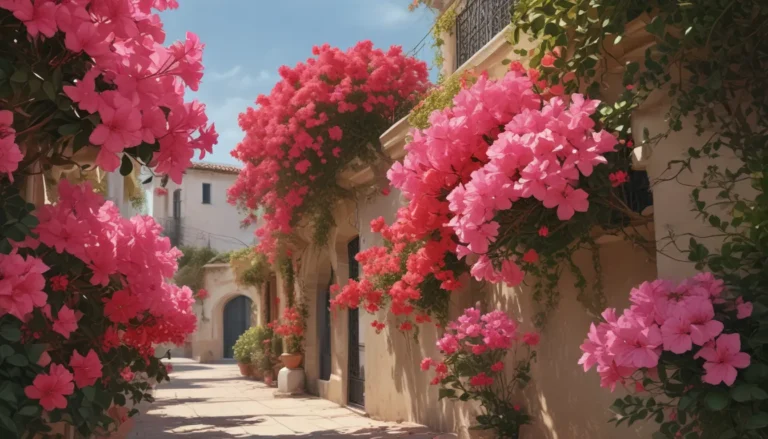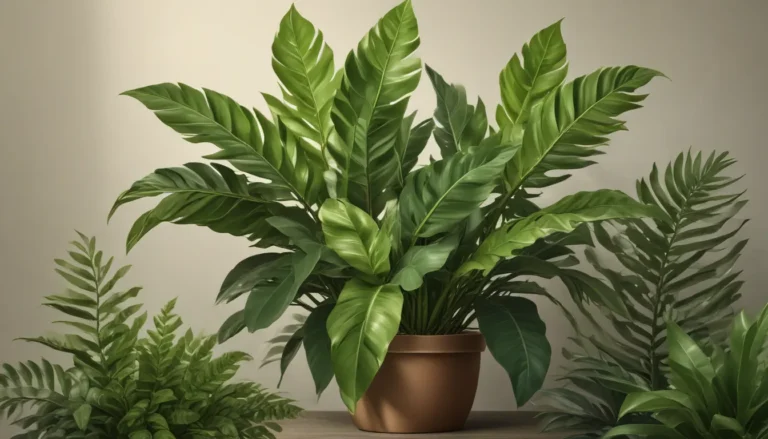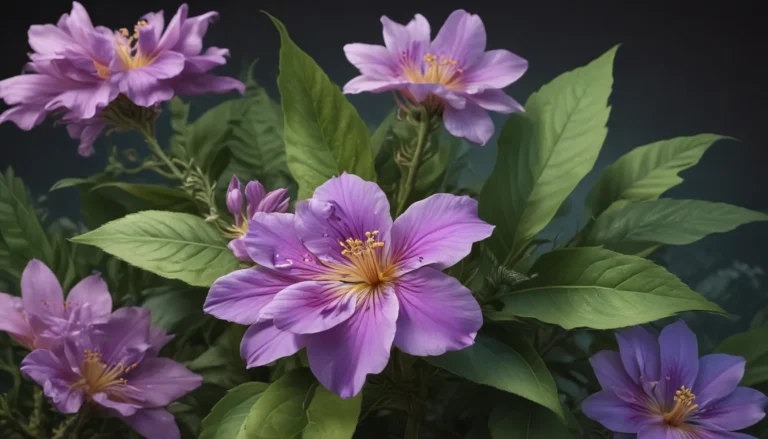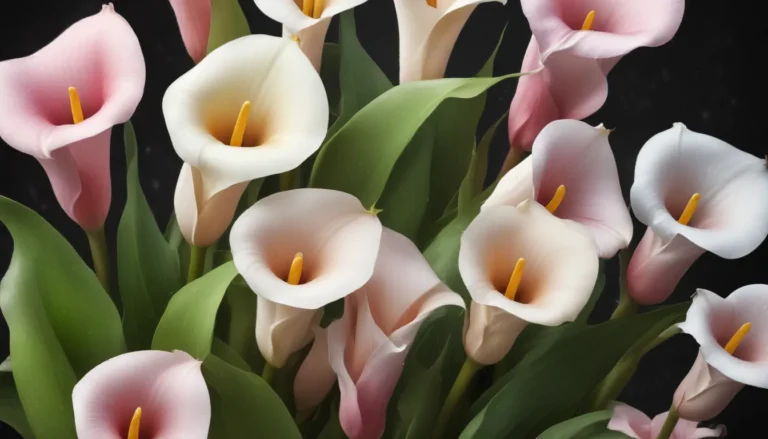The pictures we use in our articles might not show exactly what the words say. We choose these pictures to make you interested in reading more. The pictures work together with the words but don’t take their place. The words still tell you the important facts.
Are you intrigued by the beauty and versatility of birch trees? Betula, commonly known as birch, is a genus of deciduous trees that boasts over 60 different species found across the Northern Hemisphere. These remarkable trees have captured the hearts of many with their striking bark, delicate leaves, and ecological importance. Join us on a journey as we uncover 15 extraordinary facts about Betula, shedding light on its unique qualities, cultural significance, and ecological impact.
Exploring the World of Betula: A Closer Look at Birch Trees
Betula, a genus of deciduous trees and shrubs, is widely recognized for its graceful appearance and distinctive bark. With over 60 known species, Betula trees can be found in temperate regions of the Northern Hemisphere, thriving in areas with cool climates such as North America, Europe, and Asia. The common name for Betula, birch, originates from the Old English word "bircen," meaning "bright" or "shining," in reference to the tree's characteristic bark.
The Versatile Uses of Betula Trees
Birch trees have a variety of practical and artistic uses. The wood of the birch tree is known for its durability and is commonly used in the construction of furniture, flooring, and cabinetry. Betula bark is often used for decorative purposes, thanks to its unique colors and textures. Additionally, some species of Betula have medicinal properties, with compounds in their bark that have been used for their anti-inflammatory, analgesic, and diuretic properties.
Discovering the Cultural Significance of Birch Trees
Betula trees hold cultural significance in many societies, symbolizing renewal, purification, and protection. In various cultures, birch trees are associated with new beginnings and fresh starts. Some species of Betula have peeling bark, adding an interesting visual element to the tree and revealing layers of colors as it sheds. Birch leaves are typically triangular or ovate in shape, with serrated edges and vibrant green color, providing a delightful contrast against the tree's pale bark.
Betula Trees and Their Importance for Wildlife
Betula trees play a vital role in supporting wildlife, with their seeds, buds, and bark serving as a valuable food source for various animals, including birds and mammals. Some species of Betula have ornamental value and are cultivated for their aesthetic appeal, making them popular choices for landscaping and gardens. Birch wood is highly valued for its use in crafting musical instruments due to its resonant qualities and strength.
Birch Trees in Folklore and Mythology
In folklore and mythology, birch trees hold symbolic significance, representing concepts such as protection, fertility, and the divine feminine. Birch trees are associated with legends and stories that highlight their importance in various cultural beliefs. The resilience and adaptability of Betula trees make them essential for ecological balance and conservation efforts.
Unraveling the Mysteries of Betula: Frequently Asked Questions
- What is Betula? Betula is a genus of deciduous trees commonly known as birch, distinguished by their papery bark and slender branches.
- How many species of Betula are there? There are around 60 to 70 species of Betula found across the Northern Hemisphere.
- What are the different uses of Betula? Betula has multiple uses, including timber for construction, pulpwood for paper production, and traditional medicine for various ailments.
- Are all birch trees white-barked? No, not all birch trees have white bark. Some species, like the River Birch (Betula nigra), have reddish-brown bark.
- Are birch trees tolerant of cold climates? Yes, birch trees can withstand freezing temperatures and adapt to cold climates.
- Do birch trees have any symbolic or cultural significance? Birch trees symbolize resilience, purification, and new beginnings in various traditions and cultures.
- Can birch trees be grown in home gardens? Yes, many species of birch trees can be grown in home gardens with suitable soil and growing conditions.
- Are there any health benefits associated with Betula? Birch trees are known for their anti-inflammatory and diuretic properties, offering potential health benefits.
- Is Betula a low-maintenance tree? While relatively hardy, birch trees require some maintenance, including pruning and watering.
- Are there any conservation efforts focused on Betula? Conservation efforts aim to protect and preserve Betula species and their habitats due to their ecological importance.
If you're curious to explore more about the enchanting world of Betula, delve into the secrets of birch trees' unique adaptations or investigate the distinctive characteristics of specific species like gray birch. The wonders of Betula await your discovery, offering a wealth of knowledge and fascination. Celebrate the extraordinary qualities of birch trees and their essential role in the natural world. Join us in appreciating the beauty and significance of Betula, a truly captivating and remarkable genus.
